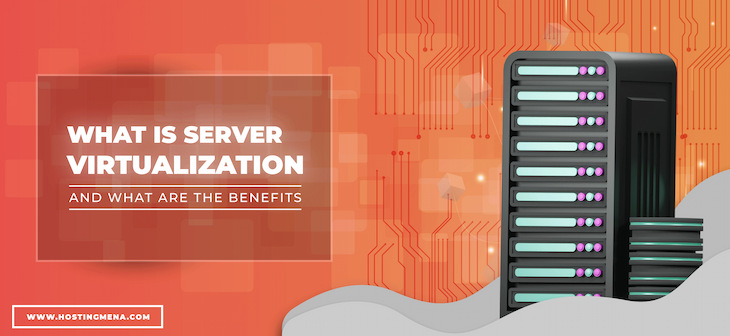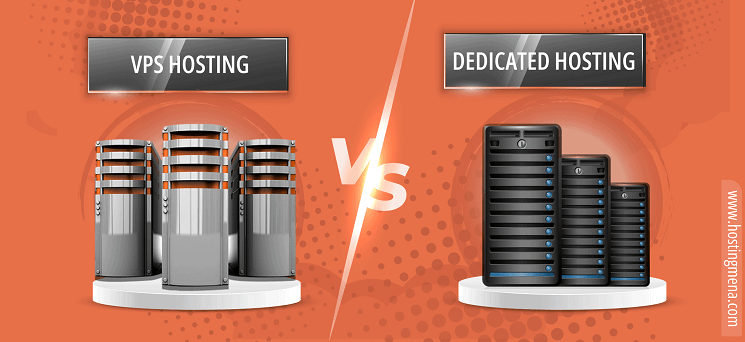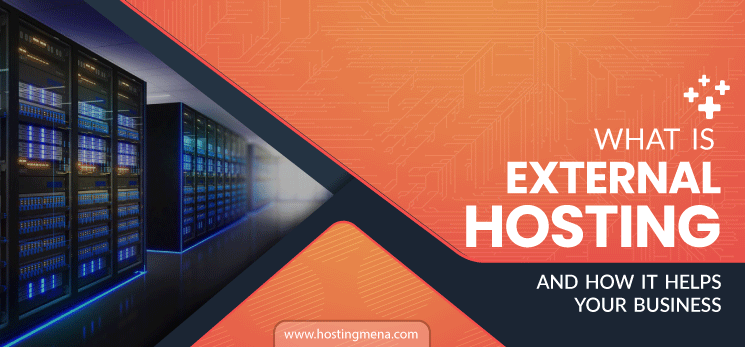What is Web Hosting, and How Does It Work?
It can’t get more digitalized than this, and you need to exploit every technological innovation available out there to boost your business activities. As you put effort into your marketing strategies and sales plans, you must also pay attention to your online presence and accessibility. Your online presence should begin with an eye-catching and effective website that is mobile-friendly and responsive. After spending dollars on its design and development, now is the time to rent space over the World Wide Web to ration your website content and files. Have you ever heard the term web hosting? We have just defined it but don’t scroll back; we will discuss everything about web hosting, how it works, the different web hosting types, and what to look at while choosing a web host in fine detail. Let us begin with a comprehensive definition of web hosting!
What is Web Hosting?
Web hosting is a service that makes your website, its content, and other files accessible on the web. A web hosting provider will allocate a space for your website over the web so that you can upload and store your files there. Every website you have visited over the internet is hosted on a specific platform (we will discuss this in detail later).
Websites and web pages are stored and hosted on special computers called servers. When you purchase a hosting plan, it’s more like renting a space over the internet for your website and files (a physical server to store your web files, codes, and images).
Web hosting is an online service that allows you to publish your website or web application on the internet for accessibility. A reliable web hosting company will promise to provide you with resources like storage, bandwidth, and technical support for the effective operation of your website. Moreover, they are also responsible for keeping the server up and running to keep you away from experiencing downtime issues.
How Does Web Hosting Work?
Understanding the mechanism of action of website hosting is crucial for establishing a solid online presence. Knowing the fundamental principles at work can help you streamline your web hosting activities, and maneuvering the platform could be easier than ever. This portion will highlight the question, “how does web hosting work.”
Web hosting will never work without physical computers called servers. A server that hosts your website will operate continuously to make your website available for visitors all the time. Once you have purchased a web server for hosting your website, you can store all the data, content, images, and files on that server.
Once a visitor enters your domain name into their search bar, the server will actively send all the information to that visitor. If the visitor wants to open your blog section, the server will send the blog to their browser screen.
Storage and server maintenance are essential functionalities of the web hosting game. Without these elements, your website may behave erratically, which creates more time-consuming processes for your website visitors.
What are the Different Types of Web Hosting?
Determining which hosting platform could be better for your website is challenging as multiple options are available. Depending on the end user’s requirements and budget, web hosting companies provide various web hosting types and packages. A business website owner could have different needs and requirements than a personal blog creator – making them different in their decisions.
Ideally, you should always opt for the basic hosting solution, especially if you are a blogger, start-up, or SME. However, if you think you can manage funds and resources, you can opt for higher packages. Let us roll through the web hosting types you can purchase for your website.
1. Shared Hosting:
The setup is said to be shared website hosting when multiple users share the same server resources like storage space, processing, and memory. As the name suggests, websites must share the same web server and its associated resources. Small businesses always opt for this type because of its simplicity and affordability.
Small websites and blogs do not require complex configurations or resources for operations. Hence, shared web hosting could be their go-to option to start with the web hosting game.
2. Virtual Private Server (VPS):
In the VPS setup, your website will share the physical server with other users like the previous one, but you can enjoy a virtual partition here. The web hosting provider will provide these virtual partitions for each user, and each user can enjoy an allocated amount of resources.
Virtual private server hosting is a perfect option for medium-sized businesses and e-commerce stores. Moreover, large blogs & businesses with a fast-growing audience base can also utilize this platform for better accessibility.
Do you want to host your website on a VPS platform? Consider getting our reliable & secured VPS web hosting in Dubai for a fast and secure host solution.
If you want to know more about VPS hosting, check out this comprehensive guide about VPS hosting.
3. Dedicated Server Hosting:
A dedicated website hosting allots a dedicated physical server to each user with dedicated resources. Users can configure the hosting environment according to their needs and choose their desired operating system and software. Renting a dedicated server hosting means having your own on-site server with excellent resources.
An added advantage of dedicated server hosting is the managed web hosting services. You can enjoy professional technical support from the hosting company when you encounter a problem with your server. It is an ideal hosting plan for large businesses and websites.
Learn more about dedicated server hosting and how it works.
4. WordPress Hosting:
WP website hosting is a CMS web hosting service that provides users with a WordPress-optimized web hosting environment. WordPress WP hosting can help websites load faster and minimize potential issues. Website owners with a technical background will always opt for WordPress hosting for the following reasons.
- Pre-installed themes and plugins
- Caching and security
- Low-cost and beginner-friendly plan
- Customer support
- Optimized performance
Learn more about WordPress hosting and how it works.
5. Cloud Hosting:
Cloud web hosting uses different virtual servers to host websites. Cloud hosting can ensure high-end performance due to multiple servers participating in the game. If one server is experiencing high traffic or a technical issue, the remaining servers will take over to keep the wheel rolling.
Cloud web hosting provides little to no downtime since it relies on more than one virtual server. Large-scale websites and E-commerce stores often opt for this platform due to its increased performance and security.
Why is a Good Web Hosting Important for Your Website?
Launching your website on the right platform can offer your website a lot. Visitors will never bear issues like slow website loading speed or downtime, and you can overcome these issues through the best website hosting. There are plenty on the list of its advantages, and we have compiled the prominent ones for you here. Let us go through them!
1. Improved website performance:
Your website performance plays a handy role when you talk about succeeding online. You only have 3-4 seconds to retain your online visitors as a slow-loading page will shoo them away, which is a solid reason for them never to return. Online visitors will never stick around if your website takes forever to load and display the content.
The effects of poor website performance do not stop here and extend to your SEO score. User experience metrics will never grant a slow-loading page a good score, which can ultimately affect your SEO. Launching your website on a high-quality hosting platform can throw all these problems out of the window. It ensures optimized performance and an incredibly fast website, fixing everything for you!
2. Enhanced website security:
Most website owners neglect website security, leading to serious threats and poor website upkeep. Despite having the basic security protocols in place, you never know what will hurt you the most. Why not opt for extra security measures like SSL certificates and security firewalls? A good web host will ensure your website is secure enough for your online visitors, especially if you are running an E-commerce store.
The foundation of your website’s security begins with the hosting you choose for your site. Since you will store all of your files and data on the server, ensuring it is safe is vital. Do you want to host your website on a secure hosting platform? Consider contacting HostingMENA and browsing through their collection of offerings!
3. High reliability and Uptime:
You will frequently come across the term “Uptime” when searching for the best web hosting company. Uptime is essential to your website, and you should never compromise. Many hosting providers will claim to offer you 99% Uptime, but who knows the truth? The one who explores and researches things! Everyone wants their website online, and Uptime is the only thing that can matter!
Before you trust the claim of a web hosting provider, it would be best to ensure the claim is valid. Downtime on your website will hurt you more than anything, and you should never fall prey to false claims. A reliable hosting company that provides you with excellent Uptime is all you need.
4. Technical support:
Not every website owner needs to come from a technical background and solve the issues on the server. Your hosting company will provide excellent technical support 24/7, should you opt for managed web hosting services. If you sell products/services on your website, you will realize the importance of technical and customer support.
What if your website mysteriously goes offline, and you know nothing about what to do next? Don’t panic! It’s time you call your hosting company and ask for technical support. Technical support plays a vital role in your success, as every second your site is offline, you suffer from losing potential prospects to your competitors.
What to Look at While Choosing a Web Host?
Once your business grows, you will consider migrating to a more advanced hosting solution for additional storage, bandwidth, and resources. However, how do you know that the hosting provider you are about to connect with provides all the resources you need? Before signing the dotted line with your new web host, here are a few factors to consider.
1. Control Panel:
A control panel will allow you to manage your hosting account without logging in to the web server. It would be ideal to choose a web host that provides a control panel with a user-friendly interface. With a manageable control panel, you can do the following:
- Manage your hosting account
- Manage your files
- Create a full backup
- Install associated applications
2. Website Uptime:
Frequent downtime can hurt your website performance, and you should never settle for a host who fails to find a solution to it. You will never want your customers’ trust to be broken, and ensure you choose a host who meets the Uptime standards.
3. Technical Support:
Technical support goes hand in hand with your server’s disk space, bandwidth, and processing power. It is vital to ensure your website runs smoothly without any glitches. Before you sign the deal with your new host, you better ask for technical support and whether they will provide it when needed.
4. Security:
Another factor you should explore is assessing the security measures of your new web host. These protective measures will ensure your website is safe from external threats like DDoS and other malware attacks. These measures should include the following:
- Access management
- Malware detection
- Automated backup
- Security updates
- SSL certificates
5. Additional Services:
A great hosting provider will include some add-ons to the hosting contract that can add to your website’s performance and security. These add-ons might be free of cost or carry a small charge. They include:
Final Words:
Getting your website live online will add countless advantages to your business should you pick the right company. Whether you have been searching for improved website performance, impenetrable security firewalls, or a higher spot on the SERP ladder, you can find all these solutions in a good web hosting plan.
The type of web hosting you choose should be the perfect match for your current business needs. However, before signing the deal, you better count on a few factors influencing your decision. Do you want to opt for a reliable hosting plan? Visit this page and browse our collection of offerings and hosting solutions for your business!
Please get in touch with our 24/7 customer support team for any hosting queries.
Frequently Asked Questions
1. What is web hosting?
Web hosting is a service that makes your website, its content, and other files accessible on the internet. A web hosting provider will allocate a space for your website over the internet so that you can upload and store your files there. Every website you have visited over the internet is hosted on a specific platform.
2. What are the basic types of web hosting?
Web hosting has the following basic types you can choose from for your business.
- Shared web hosting
- Virtual Private Server (VPS) hosting
- Dedicated hosting
- WordPress hosting
- Cloud hosting
3. What to consider before choosing a web host?
Before you finalize the deal with a web hosting company, you should look for a few essential factors. These factors include:
- Understanding your business needs
- Security measures of the host
- Technical support
- The ability to upgrade your server
- Additional services and features
4. Is it necessary to buy hosting?
Most often, YES! Purchasing a web hosting plan is a strategic and cost-effective approach to adding security and improving the performance of your website. The hosting provider will implement state-of-the-art technologies to keep your website safe and secure.
5. How much does it cost to host a website?
The total cost of web hosting depends on the hosting type and provider you choose for your website. The cost factor will include the following things as the final deciders:
- The hosting type you choose
- Desired features you choose
- The hosting provider






